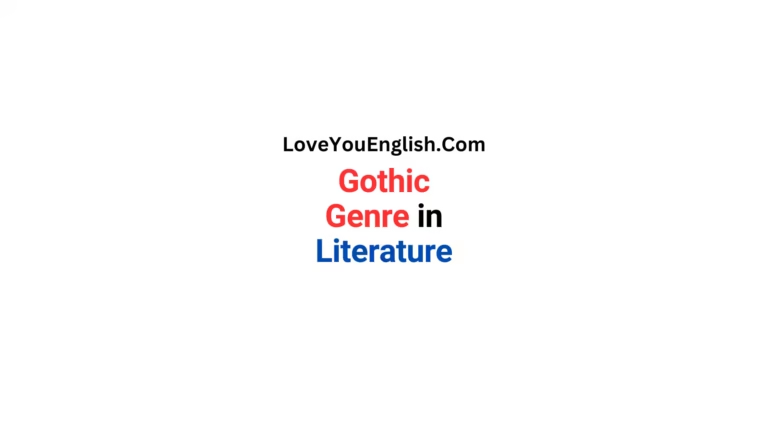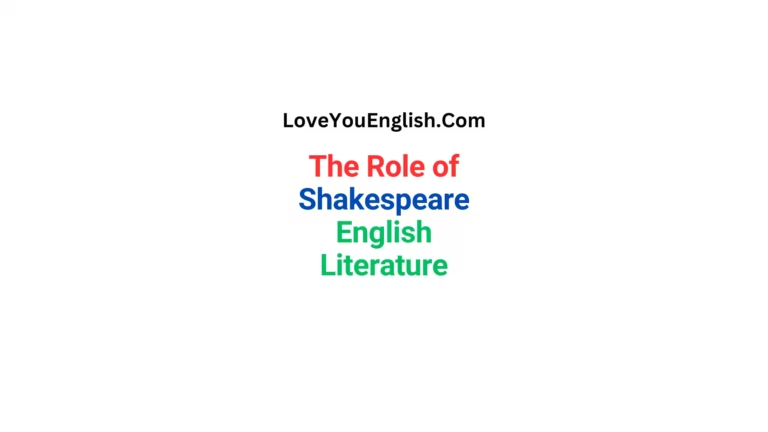Epic Tales in English Literature: Beowulf & Paradise Lost
Epic tales are among the most captivating and influential stories in literature. They transport us to distant lands, introduce us to legendary heroes, and teach us about life, values, and history. English literature boasts a remarkable collection of epics, from the ancient Beowulf to John Milton’s Paradise Lost. These works not only entertain but also provide profound insights into the cultures and eras they represent.
In this post, we’ll delve into two of the greatest epic tales in English literature: Beowulf, the oldest surviving English epic, and Paradise Lost, one of the most iconic works in the English language. By comparing these masterpieces, we’ll explore the evolution of the English epic and how storytelling has transformed over time.
Beowulf: The Heroic Poem
Beowulf is one of the earliest and most significant works of English literature. This epic poem tells the story of Beowulf, a mighty warrior from the land of the Geats. Set in Scandinavia, the tale revolves around Beowulf’s battles with three fearsome monsters: Grendel, Grendel’s mother, and a fire-breathing dragon. Through his courage and strength, Beowulf rises to become a king and ultimately sacrifices his life to protect his people.
Although written in Old English—a language difficult for modern readers—the themes of Beowulf are universal: bravery, loyalty, and honor. The story is structured around Beowulf’s heroic journey, showing his growth from a fearless warrior to a wise and selfless leader.
The poem is rich with vivid descriptions of Beowulf’s deeds and the terrifying monsters he confronts. These creatures symbolize the forces of evil that must be overcome to ensure peace and justice. Beowulf illustrates the eternal struggle between good and evil, where the hero must make great sacrifices to protect his people.
Beowulf himself is a larger-than-life figure, embodying the values of the Anglo-Saxon era. His superhuman strength and unwavering bravery reflect the qualities admired in warriors and kings of that time. The epic also offers a glimpse into the ancient world, with references to mythological beings and cultural traditions of the Anglo-Saxons.
Paradise Lost: A New Kind of Epic
Centuries after Beowulf, John Milton penned Paradise Lost, an epic unlike any before it. While Beowulf focuses on physical battles, Paradise Lost explores the internal battles of the mind, heart, and soul. Written in the 17th century, this philosophical and religious epic recounts Satan’s rebellion against God and the fall of humanity.
The story begins in Heaven, where Satan leads a revolt against God and is cast into Hell. Consumed by anger and a desire for revenge, Satan tempts Adam and Eve, leading them to disobey God and bringing sin into the world. Through their fall, humanity is doomed to suffering, but Milton also introduces themes of redemption and hope.
Unlike Beowulf, Paradise Lost emphasizes ideas and themes over action. The characters are deeply complex, especially Satan, who is portrayed as a tragic and ambitious figure. His famous declaration, “Better to reign in Hell than serve in Heaven,” highlights his defiance and pride.
Written in blank verse (unrhymed lines), the poem features eloquent speeches where characters express their emotions, dilemmas, and moral struggles. Paradise Lost is not merely a battle between good and evil; it’s a profound exploration of free will, temptation, and the consequences of choice.
One striking difference between Beowulf and Paradise Lost lies in their heroes. Beowulf is a physical warrior who protects his people through strength and valor. In contrast, Milton’s “hero” is Satan, whose rebellion reflects the power of thought, speech, and defiance.
Contrasting Structures
Both Beowulf and Paradise Lost are epic poems, but their structures differ significantly. Beowulf follows a straightforward narrative, chronicling the hero’s battles, rise to kingship, and ultimate sacrifice. It celebrates physical courage and the honor-bound life of a warrior.
In contrast, Paradise Lost is more intricate and philosophical. It intertwines the cosmic struggle of Satan’s rebellion with the moral downfall of humanity. Milton’s use of rich language and blank verse adds a reflective, almost meditative tone to the story.
Themes of Good and Evil
Both epics center on the theme of good versus evil but approach it differently. In Beowulf, the struggle is external and clear-cut. The monsters—Grendel, his mother, and the dragon—represent pure evil, and Beowulf’s battles symbolize the triumph of good over darkness. Themes of bravery, honor, and loyalty shine throughout.
In Paradise Lost, the battle between good and evil is more nuanced. Satan is not a one-dimensional villain; his ambition and pride make him a compelling, even sympathetic character. The poem examines humanity’s role in this struggle, emphasizing free will and personal choice. Adam and Eve’s decision to disobey God highlights the complexity of moral responsibility.
While Beowulf focuses on external threats, Paradise Lost delves into internal, spiritual conflicts. Even Satan is given a voice to express his motivations, making the epic layered and open to interpretation.
The Legacy of These Epics
Both Beowulf and Paradise Lost have left an indelible mark on English literature. Beowulf laid the foundation for English epic poetry, inspiring tales of heroism, adventure, and the battle between good and evil. Its influence is evident in modern fantasy and adventure genres.
Paradise Lost has had a profound impact on literature, philosophy, and theology. Its exploration of free will, sin, and redemption continues to inspire writers and thinkers. Milton’s portrayal of Satan as a tragic hero has shaped countless literary works, making the character an enduring figure.
Conclusion
Epic tales like Beowulf and Paradise Lost hold a unique place in literature, offering timeless lessons on heroism, morality, and the human condition. While Beowulf celebrates physical courage and heroic deeds, Paradise Lost explores the complexities of good and evil through a philosophical lens. Together, these epics showcase the evolution of English storytelling, from ancient oral traditions to deeply reflective, literary works.
These stories transcend their time, language, and culture, continuing to resonate with modern audiences. Whether through Beowulf’s valor or Satan’s tragic defiance, these epics remind us of the power of storytelling to inspire, challenge, and illuminate the human spirit.
Read more:
- Epic Tales in English Literature: Beowulf & Paradise Lost
- How to Analyze a Poem: A Step-by-Step Guide for Beginners
- Understanding Symbolism in Classic English Literature
- How to Prepare for an English Literature Exam
Resources:
- Oxford English Dictionary for Literary Language
https://www.oed.com - Literary Theory and Criticism
https://plato.stanford.edu/entries/literary-theory/ - Public Domain Classics and E-Texts
https://www.gutenberg.org







